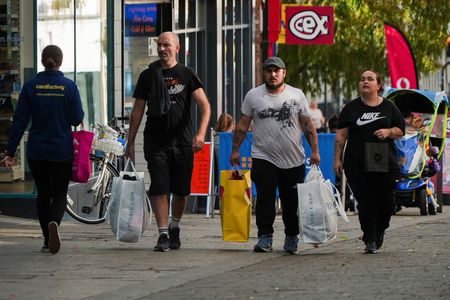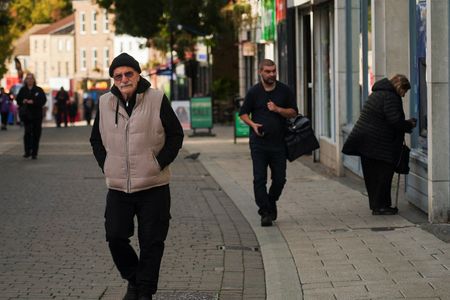By Andrew MacAskill
THETFORD, England (Reuters) – Sue Bogacki, a retired care assistant, backed Britain’s Labour Party in the summer in the hope it would end the chaos that marked British politics in recent years.
She now calls that one of her biggest political mistakes.
Bogacki lives in South West Norfolk, an area that saw the largest ever swing from the Conservatives to the now governing Labour at a general election.
In one of the biggest surprises of election night, former Prime Minister Liz Truss was ousted as the area’s member of parliament after support for her collapsed.
Almost four months later, some of those voters who switched parties expressed regret before the government’s first budget next week with apprehension about big tax rises, the government’s recent austere tone, and fears the party will not control illegal immigration.
Prime Minister Keir Starmer has warned the budget will be “painful” and the wealthy will have to pay more tax to fix what he said was a disastrous economic inheritance from the previous government.
But he said voters will feel better off by the end of this parliament.
In South West Norfolk, which is largely rural, white, elderly, Brexit-backing and had been a Conservative stronghold for 60 years, voters accused Labour of substituting its message of hope, which it campaigned on, for one of pessimism.
Bogacki, 72, complained that the government unexpectedly announced it would restrict payments worth up to 300 pounds ($389) to help the elderly with winter heating costs to save money.
She fears other benefits could be taken away.
“The government promised that there would be change and life would get better,” she said. “But all we have heard is negativity. And if the government is not positive, you don’t feel positive.”
Labour swept to power with a promise to rebuild Britain in July’s election, ending 14 years of often tumultuous Conservative government.
But Starmer has already been forced to change some of his top officials following rows over donations, cuts to welfare spending, and plummeting poll ratings.
According to one opinion poll, Labour now only leads the Conservative party by a single point, compared with about 20 percentage points before the election.
The government’s political honeymoon, if ever there was one, is gone.
Starmer said this month he faced “choppy days” in his first three months in power but he will not change course.
HARD TIMES
Reuters spoke to about 40 passersby, men and women, young and old in Thetford and Swaffham – two picturesque market towns in South West Norfolk, to assess the mood before the budget.
Voters expressed an array of competing demands that show the challenges the new government faces in satisfying a dissatisfied and fragmented electorate.
Every voter wanted better public services, but many were reluctant to pay higher taxes to fund them.
Asked where the money should come from, many said the government should use funds currently spent on supporting asylum seekers who arrive on small boats, which has become an embarrassing symbol of Britain’s failure to control its borders, but only makes up a small percentage of spending.
Among the elderly, the main demand was to reverse the recent decision to restrict payments to help all retirees with winter heating costs, which was not in the party’s manifesto and was made only a few weeks after the election.
Labour has said that the poorest people can apply for alternative support known as Pension Credit that would minimise the impact.
Angie Caunter, 77, a former dress designer, said those cuts, combined with the high inflation, in recent years means she had tried to stop spending on her bank cards and relies on using cash so she can better keep track of her spending.
“Life is hard for lots of people,” she said.
Joel Duggan, 20, who works as a legal secretary and backs the Labour Party, said he thought the elderly already received too many benefits and the government should focus on raising the minimum wage and building more homes, so they become more affordable for young people.
“We need to acknowledge that there is lots of intergenerational unfairness,” he said.
If Labour cannot find a way to satisfy voters, many young and old, said they may turn to Nigel Farage’s anti-immigration Reform Party, which only contested its first national election this year, rather than return to the Conservatives.
Toby McKenzie, the Reform candidate in South West Norfolk, only lost the election by under 2,000 votes.
McKenzie, who had no experience of politics before standing in the election, said he only had a few months to prepare with limited funds.
“We are growing and getting a more professional structure,” he said. “Next time, if people were on the fence, or didn’t vote for us, they can see we are real viable alternative.”
($1 = 0.7708 pounds)
(Reporting by Andrew MacAskill; Editing by Alexandra Hudson)













